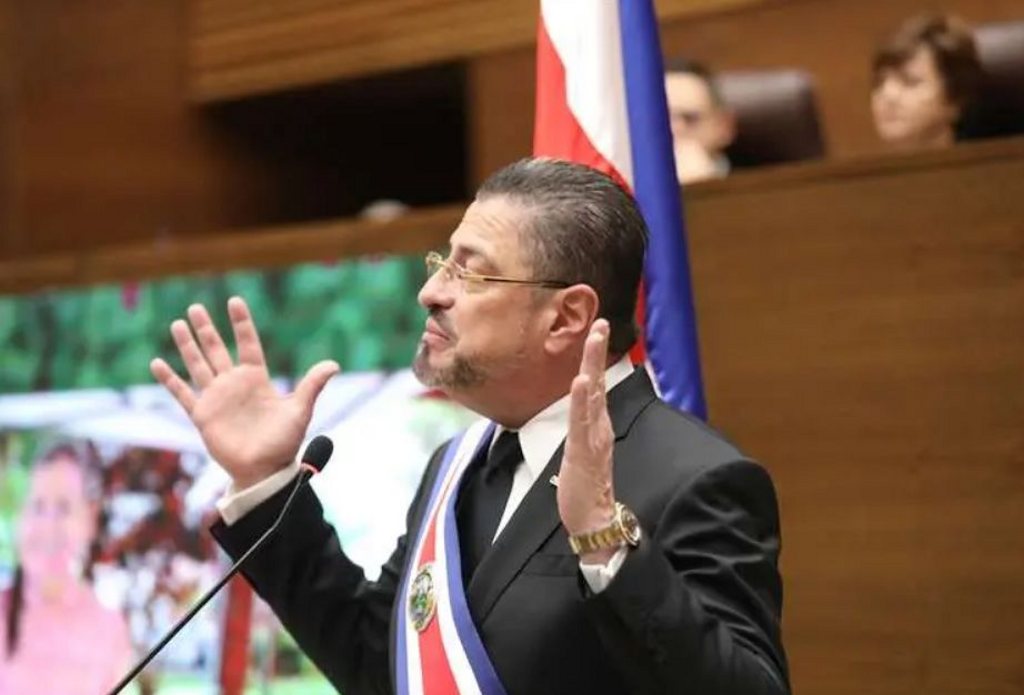Among lettuces and sacks of potatoes, Doralicia Moreno, a vendor at Panama’s largest market, complains that “customer turnout is minimal” and longs for the new president to restore prosperity.
“I don’t think there’s anyone here in this market who would say: things here are fine,” said this employee of ‘Merca Panama,’ where 80% of the vegetables consumed in the capital are sold.
“Panamanians did not go through (before) the kind of problem we are experiencing now,” laments the 39-year-old vendor. “It’s a very small country for the number of candidates (eight) we have for the presidency, and I don’t know who to vote for on Sunday,” she added.
Andrés Vlieg, who buys vegetables at the market for his store in the satellite city of Arraiján, also laments that “sales right now are a bit slow.”
“There was an incredible boom before, Panamanians had work everywhere, nothing was lacking, everything was fine,” said the 53-year-old merchant.
Many Panamanians feel nostalgic for the economic situation a decade ago when there was an unprecedented real estate boom and major infrastructure works, such as the expansion of the Panama Canal and the construction of the first subway in Central America.
Panama has a dollarized service economy, attractive for foreign investment, an international financial system, and the largest free-trade zone in Latin America. Its engine, the interoceanic canal, contributed $2.544 billion to the treasury in 2023.
Panama’s GDP grew by 7.3% in 2023 according to the government and 6.5% according to the World Bank, above the Latin American average (2.2%, according to ECLAC). It is also a country with high per capita income in Latin America ($17,357.6 in 2022, according to the World Bank).
However, 45% of Panamanian jobs are informal, and unemployment is around 9%. A third of the rural population lives in poverty, and unions complain that purchasing power has fallen by 10% since 2016.
Panama Middle class hit
Panamanian economist Horacio Estribí states that “economic growth has concentrated on benefiting very specific groups and very little or nothing to those with low incomes.”
But the middle class also feels overwhelmed, especially due to increases in mortgage interest rates and gasoline prices. “The economy, even for those of us who are middle class, has been very hit,” said mobile app entrepreneur Carlos Montero.
Montero recalls paying a monthly installment of $500 for a loan for the purchase of his apartment in the bohemian neighborhood El Cangrejo. It then rose to $700 and now to $950. “We can’t endure five more years with an economic situation that keeps declining,” said the 48-year-old entrepreneur.
Vlieg says he hopes the new president “will do the best for the country.” But “we can’t prevent them from stealing, because it’s something they carry in their blood like DNA,” he expressed.
More taxes?
Whoever the next president is must ensure the water supply for the canal is secure, affected by a drought that has reduced ship transit and threatens fiscal revenues.
The Social Security Fund “will run out of resources for pension payments in 2025,” assures Esteban Tamayo, an economist for the American bank Citi for the Andean Countries, Central America, and the Caribbean.
The Fund pays about $1.760 billion annually in pensions. Additionally, the country faces an international arbitration due to the closure in 2023 of an open-pit copper mine with Canadian capital.
“A ruling against arbitration in the case of the mine would imply a very broad contingent liability for the government,” Tamayo points out. The mining company claims $20,000 million in compensation, according to local media.
“With this in mind, and with the possibility of losing the investment grade, the next president must soon […] present a fiscal adjustment plan, possibly including tax increases,” he adds.
Estribí notes that the country has “a canal that yields such good results, that it has not been necessary to reform the tax system.” But Montero warns that “a new tax would actually be a cut to the jugular” of the Panamanians.
Source link
AFP



